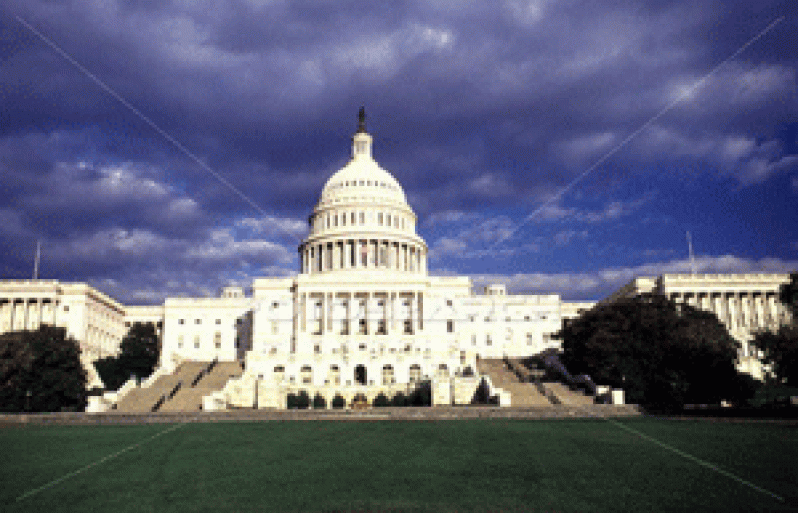IT IS no secret that President Barack Obama is asking the American people for a second term in office. It also is no secret that Obama inherited a distressing economic legacy from former President George W. Bush in 2008, an economy that today still suffers from the Bush inheritance; recall that in 2009, Obama, with a majority government (the Democratic Party controlled both the Senate and the House of Representatives) injected a $787 billion stimulus plan to ward off an economic collapse, when the economy was experiencing a free fall due to the international financial meltdown; the stimulus plan decreased unemployment and raised the Gross Domestic Product; also, in the same year, Obama, in attempting to avert a banking collapse, made TARP funds available to the 19 largest financial institutions, and these funds have now been repaid.
| ‘It is no secret that since 2011, Obama was saddled with a minority government, unlike the majority status he convincingly won in 2008; and engagement of his minority government with the Republicans, who now control the House of Representatives, clearly signals that he would be unable to implement his substantive agenda prior to the November 2012 Presidential elections’ |
Certainly, it is no secret that Obama is the first African-American President, and faces the concomitant racism against minorities persisting in the U.S., a society founded on slavery, disenfranchisement, and White domination.
It is no secret that since 2011, Obama has been saddled with a minority government, unlike the majority status he convincingly won in 2008; and engagement of his minority government with the Republicans, who now control the House of Representatives, clearly signals that he would be unable to implement his substantive agenda prior to the November 2012 Presidential elections.
Obama’s signal achievement in this first term is health care reform which, according to Michael Tomasky in the Guardian, is both a historical triumph and a political albatross. The Republicans are intent on repealing this health care law.
However, the biggest shackle currently facing Obama is whether to extend the Bush-era tax cuts for the wealthy, that is, for those earning more than $250,000 per year. Obama and the Democrats vehemently oppose it, while Republicans are intent on passing it. Indeed, with a majority, Obama would have terminated the tax privileges for the wealthy.
On the other hand, If Obama had a minority government in his first two years in office (2008-2010), the health care bill would not have gone beyond his desk. His majority in both the Senate and the House of Representatives in 2008 enabled him to enact into law health care reforms, that no other American President over the last 50 years was able to effect.
Nevertheless, in these last two years of the Obama Presidency (2010-2012), he has been unable to persuade Congress to approve some substantive parts of his agenda. In fact, the main aim of the Republicans commencing aggressively since the 2011 budget was to cut federal budget spending, in order to reduce Obama’s chances of winning re-election.
For instance, Republicans sliced Obama’s agenda through refusing to pass the 2011-2012 budget by insisting on massive spending cuts. In order to get the 2011-2012 federal budget approved to ensure that the government met its payment obligations, and maintain its credit rating, Obama struck a deal with Republicans. Obama asked for a $2.4 trillion increase in the debt ceiling that then stood at $14.3 trillion, and agreed on $2.5 trillion in spending cuts largely from welfare benefits to the poor.
In The Weekly Address (July 28, 2012), Obama urged Republicans in the House of Representatives to support his proposal to protect the middle class and small businesses from any huge tax increases in 2013, which could be $2,200 for the average family). Obama noted that all of Congress seem to endorse his plan to provide tax cuts to the middle class, and the Democratic Senate already has approved this proposal. But Republicans in Congress are holding this proposal as a hostage, until and unless, tax cuts also are given to the wealthiest Americans (those earning $250,000 or more).
Obama argued that taxing the rich would create more jobs and increase economic growth. The Reagan Administration did the opposite and received negative outcomes. In 2007 in the Guyana Chronicle, I noted the following: “In fact, the Reagan Administration reduced tax rates for the wealthy in the early 1980s. The Administration’s belief then was that the reduced tax rate, in the end, would benefit the poor; how so?
The increased income to the wealthy through lowered tax rates would be invested, generating additional income; and this extra income to the wealthy should trickle down to the working class and the poor, creating more jobs and wage income; the infamous ‘trickle- down economics’ in action; In theory, more tax revenues; but these prognoses did not happen.
Roubini argued that the voodoo economics through reduced tax rates did not increase tax revenues, but exploded budget deficits, decreased GDP growth rate and productivity, and lowered savings and investment.”
While Obama opposes trickle-down economics and he is correct, his minority government status is hurting his chances of re-election. The evidence that trickle-down economics does not work is available. Yet the Republicans in Congress have a greater concern for political victory in the Presidential election than what is good for the country. And Republicans are able to push this line because they are in a majority in the House of Representatives. The majority status that Obama won in 2008 would have ensured tax cuts to the middle class. Nevertheless, Obama’s minority governmental status is hurting his chances at securing a second term.



.jpg)








